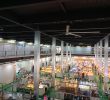DAVAO CITY – An environmental group urges residents here to save water by harvesting rainwater and storing it for household chores.
Mark Penalver policy advocacy specialist of the Interface Development Interventions (Idis) said “harvesting rainwater for domestic or industrial use will lessen our water utility bills since we won’t waste drinking water for flushing toilets, cleaning households or for watering gardens.”
The local government passed a Davao City Rainwater Ordinance in 2009, mandating the establishment of rainwater catching systems (RCS) in newly built residences and buildings. The policy was formulated to promote the storage and usage of rainwater for non-potable use.
Under the ordinance, building designs must incorporate a rainwater catchment system before being issued a building permit. The City Engineer’s Office (CEO) is finalizing some RCS designs for a recommendation, but the office has begun issuing RCS permits for applications who have complied with the ordinance.
Penalver also encouraged households and existing buildings to comply with the ordinance.
“RCS designs need not be complicated; it can be as simple as placing an empty container under a gutter or a downspout so that the rainwater will be harvested,” he said.
Penalver said it is important to put a screen on the mouth of the container to prevent mosquitoes from breeding in the stored water.
“For longer storage, cover the containers. Otherwise, empty the containers in less than 10 days to prevent mosquito larva from inhabiting the water,” he said.
Penalver said RCS “can reduce the effects of storm water peak flow and surface runoff.”
“Imagine if every building in the city has a RCS, there will be less flooding in the streets and less erosion of floodwater canals,” he said.
The group is also pushing for a more widespread use of RCS “since the Talomo-Lipadas Watershed aquifers are running out of potable water.”
“We need to conserve our water and this means not wasting it for non-potable use,” Penalver said. (davaotoday.com)










